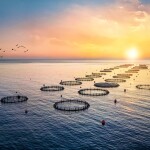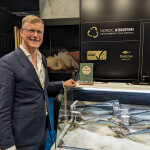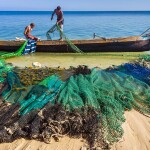Statement from Karmenu Vella, European commissioner for the environment, maritime affairs and fisheries:
Close your eyes and imagine the ocean: the sound of waves crashing against rocks, the smell of salt in the air. Picture children playing on the beach, fishing boats casting their nets far out at sea, the blades of offshore windfarms turning steadily in the wind.
Picture this and you begin to grasp the importance of the oceans for our climate, for our economies, for our well-being. Oceans make up 71 percent of our planet. They provide 50 percent of the oxygen and absorb 30 percent of the CO2 around us. The oceans' value to us – in delivering food, energy, medicine and much more – has been estimated by WWF at a mind-boggling 24 trillion dollars. It is up to us to ensure we do not squander this wealth, but protect and preserve it for future generations. That is why I am so glad to attend the “Our Ocean” conference in Valparaiso, hosted by Minister Heraldo Munoz, and the Chilean Ministry of Foreign Affairs. It gives me a chance to illustrate the EU’s commitment to improving Ocean Governance.
The international community is starting to recognize – and assume – its role as stewards of this important shared resource. The Chilean proposals for a new marine park covering an enormous 278,000 square miles of ocean around Easter Island are one example. So is the Colombian government's new bill to protect its marine resources and combat illegal fishing, or the whale and dolphin sanctuary that Uruguay created two years ago and that has helped to make whale-watching a major tourist attraction.
And these are just examples from this continent. Other countries, including Member States of the European Union, are also doing their bit to protect and preserve marine ecosystems for current and future generations. For instance, the European Union is developing a “Blue Growth” strategy that allows maritime activities to thrive while maintaining high standards on environmental protection.
Yet numerous as they may be, individual national initiatives are not enough. Collective international action is required too, in particular as 60 percent of our oceans are beyond national jurisdiction. These waters are – by definition – a "shared" source of minerals, seaweed and fish. How can we protect and sustain this resource? Are we sure we know what goes on out there? Are rules being complied with? Are these rules up-to-date?
We are taking steps in the right direction. Earlier this year, the UN reached consensus on developing a new Implementing Agreement on marine biodiversity in areas beyond national jurisdiction. Once ready, this instrument will make sure that the UN Convention on the Law of the Sea, developed some thirty years ago, is fit to meet today's challenges. And just last week, the international community adopted the Sustainable Development Goals in New York. Goal 14 clearly states: "Conserve and sustainably use the oceans, seas and marine resources."
This is progress. But will it be enough?
I remain convinced that governance gaps exist when it comes to managing our oceans sustainably. I have therefore spent the last few months listening to and consulting with our partners, in Europe and around the globe, personally and via a public consultation, on how the world is currently dealing with oceans and their use by mankind. I want to figure out what role the European Union can play in improving the current framework of international rules, conventions, fora and policies. Our cutting edge system designed to tackle Illegal, unreported and unregulated fishing is an example of which we can be justifiably proud. Based on the results of this exercise, we will launch a major initiative on international ocean governance next year.
The European Union controls 40 percent of the world's fishing fleet. Our Seafood market is the biggest in the world. Our maritime economy generates 560 billion dollars annually in gross value added. We stand ready to assume the responsibility that comes with this size. But we cannot do this alone, nor can anybody else. What we can do is listen to one another, learn from one another, and decide how best to move forward, together. That is why I am in Chile this week: to see with our international partners what we can do to make our oceans cleaner, healthier and more productive – to ensure thriving oceans for our shared future.





